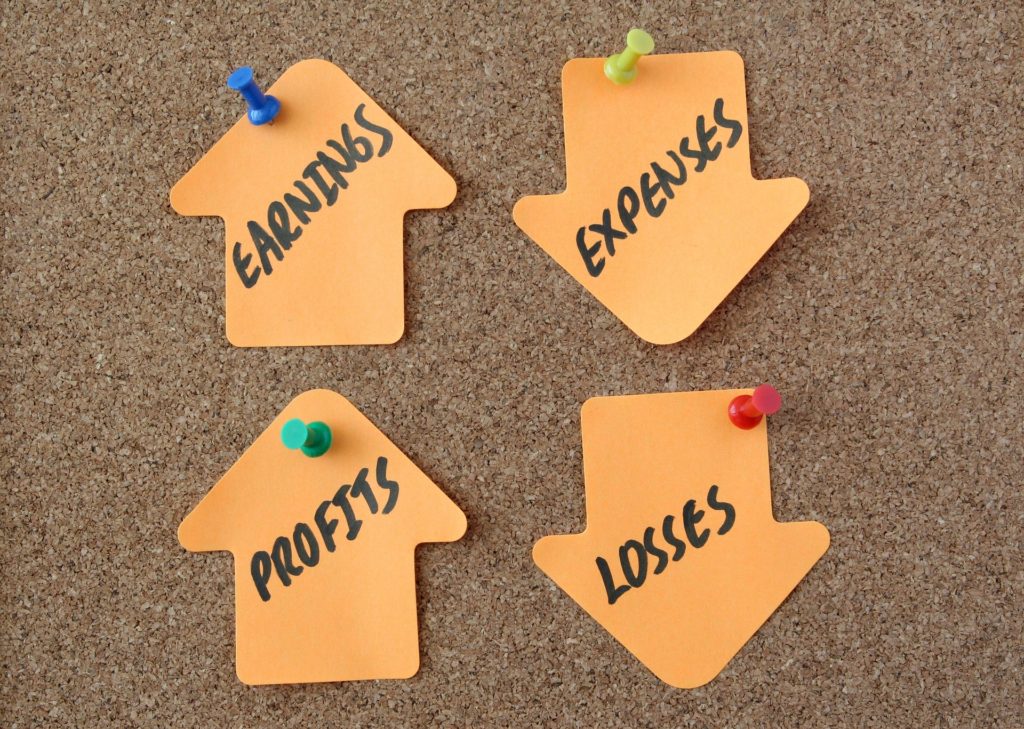
Making money through investing is hard. That might be surprising to hear but it’s really the truth. As a young child I was taught to put my money into a savings account to earn interest. If I had money I didn’t want to use for a relatively long time I was told to put it in a Certificate of Deposit (CD) to earn a higher interest rate. Some people even buy US Treasury Savings bonds. All of these savings methods earn interest and make it appear as if you have more money, but the fact is a person using these methods will end up with less buying power as time goes on. Putting your money into savings account is an activity that actually loses money.
Savings Accounts
As of the writing of this article, the interest of a typical checking account is 0.05 – 0.10%., while a savings account will earn an interest rate of 0.15% and a CD will get a person 1.25%. Unfortunately, inflation right now is at 2.8%. This means that no matter which of these you choose, each day it’s worth less than the day before.
Here are some examples of just how much less a person’s money is worth after one year. Given a person that has $10,000 to put somewhere, here’s what they would have after the end of the year:
- Checking account (0.05%) : $10,005
- Savings Account (0.15%) : $10,015
- CD (1.25%) : $10,125
With the current inflation rate of 2.8%, after one year a person would have to have $10,280 to have the same buying power of the $10,000 they had at the beginning of the year. While each savings account is better than doing nothing with your money, all of them result in less buying power than at the beginning of the year.
US Treasury Savings Bonds
US Treasury Savings Bonds are another safe investment, as they are backed by the United States Government. The Series I savings bonds have both a fixed and a variable interest rate component. The fixed rate is set when the bonds are purchased, while the variable rate component is adjusted every 6 months with the rate of inflation. So, in theory, it is possible to actually increase your buying power as the variable rate component keeps up with inflation. Unfortunately, in the recent years the fixed rate has been 0% or maybe 0.1% resulting in the interest earned being exactly enough to keep up with inflation. Using our same example, with a 0% fixed rate and a 2.8% variable rate:
- Savings Bond (2.8%): $10,280
Taxes
Interest earned is taxable income, therefore the amounts above also need to be taxed. Just as an example, if our investor is in the 20% tax effective tax bracket here’s what the various accounts would look like after a year:
- Checking account (0.05%) : $10,004
- Savings Account (0.15%) : $10,012
- CD (1.25%) : $10,100
- Savings Bond (2.8%): $10,224
Given inflation of 2.8%, and that a person would need $10,280 to have the same purchasing power after a year, it is obvious that the most popular avenues of saving money result in having less money, or more specifically less buying power.
How Can You Build Wealth?
- Stocks : Investing in the stock market is one way to actually make your buying power grow over time. Historical data shows that investing long term will give an average annual return of about 7% including dividends.
- Property : Property also tends to increase in value over time. Investing in property can also be a good way to build wealth over time.
- Invest in a Business : Investing in something that actually generates income, such as a business, can be a smart investment move. Over a long period of time, the income generated by a business can be many times the amount initially invested.
Of course the downside to these methods of building wealth is risk. Stocks can go down, property can decrease in value, and a business can fold up shop.
Many people do not realize that putting money into a savings account, while not as bad as stuffing it into your mattress, actually results in losing money. It’s important to recognize this and engage in other higher risk activities early in life to build wealth while you still have time to recover from any potential losses.
How about your EOD nation, did you realize that putting money into a savings account will lose money?
Great point. With rates this low it doesn’t make sense to store money into savings beyond an emergency fund. Until they go back up, I would say the best thing people can do is pay off debt and invest into their retirement accounts.
Sometimes the purpose of having money on hand via a savings account has nothing to do with making money. People need to look at all factors that are important to them at the time when deciding where to house their money.